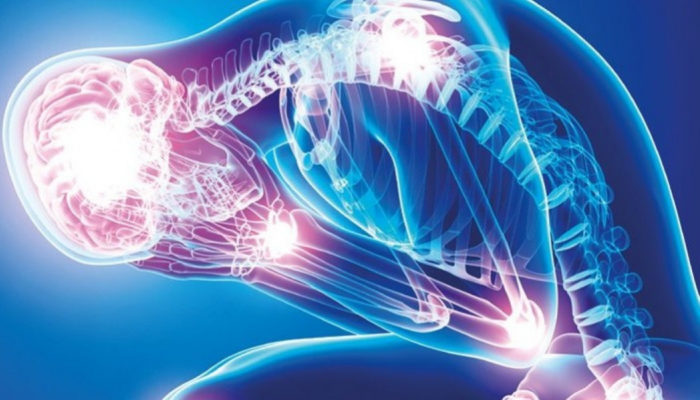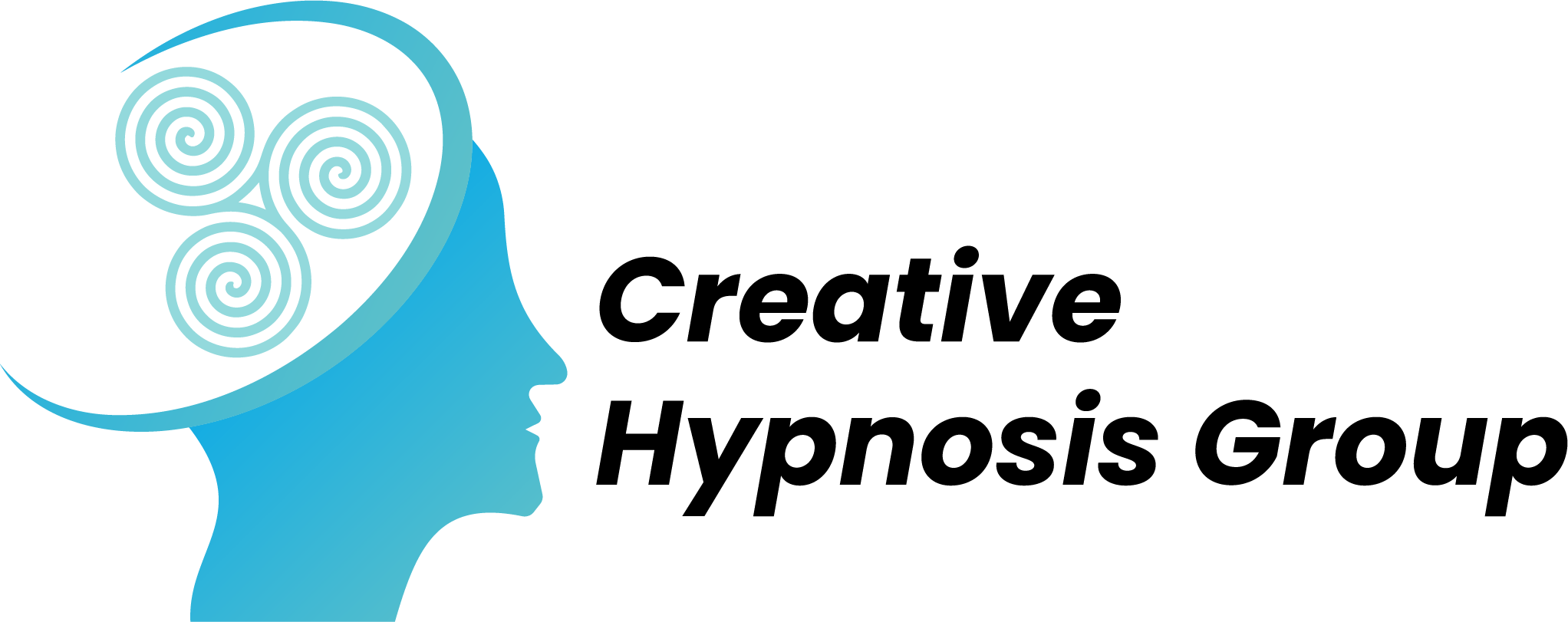
With chronic pain, signals of pain remain active in the nervous system for weeks, months, or even years. This usually takes both a physical and emotional toll on a person. Hypnosis can be used to address both the physical and emotional issues.
The most common sources of pain stem from headaches, joint pain, pain from injury, and backaches. Other kinds of chronic pain include tendinitis, sinus pain and carpal tunnel syndrome.Other pain affecting specific parts of the body, such as the shoulders, pelvis, and neck, generalized muscle or nerve pain can also develop into a chronic condition.
Chronic pain may originate with an initial trauma, injury or infection, or there may be an ongoing cause of pain. Automobile accidents are the originating point of much chronic pain. However, some people suffer chronic pain in the absence of any past injury or evidence of body damage.
The emotional toll of chronic pain also can make pain worse. Anxiety, stress, depression, anger, and fatigue interact in complex ways with chronic pain and may decrease the body’s production of natural painkillers. Negative feelings may increase the level of substances that amplify sensations of pain, causing a vicious cycle of pain for you.
What Are the Symptoms of Chronic Pain?
- Mild to severe pain that does not go away
- Pain that may be described as shooting, burning, aching, or electrical
- Feeling of discomfort, soreness, tightness, or stiffness
Pain is not a symptom that exists alone. Other problems associated with pain include:
- Fatigue
- Sleeplessness
- Withdrawal from activity and increased need to rest
- Weakened immune system
- Changes in mood including hopelessness, fear, depression, irritability, anxiety, and stress
- Disability
From the American Psychological Association:
"Research shows that hypnosis works as part of a treatment program for a number of psychological and medical conditions, with pain relief being one of the most researched areas, as shown in a 2000 study by psychologists Steven Lynn, PhD, Irving Kirsch, PhD, Arreed Barabasz, PhD, Etzel Cardeña, PhD, and David Patterson, PhD. Among the benefits associated with hypnosis is the ability to alter the psychological components of the experience of pain that may then have an effect on even severe pain.
In recent years, the anecdotal and sometimes exaggerated evidence for the effectiveness of hypnosis to decrease sensitivity to pain - known as hypno-analgesia - has been supplemented by well-controlled experiments. In their 2003 review of controlled clinical studies, Dr. Patterson and fellow psychologist Mark Jensen, PhD, found that hypno-analgesia is associated with significant reductions in: ratings of pain, need for analgesics or sedation, nausea and vomiting, and length of stay in hospitals. Hypnosis has also been associated with better overall outcome after medical treatment and greater physiological stability. Surgeons and other health providers have reported significantly higher degrees of satisfaction with their patients treated with hypnosis than with their other patients."

Anderson JA, Basker MA, Dalton R, Migraine and hypnotherapy, International Journal of Clinical & Experimental Hypnosis 1975; 23(1): 48-58.
Hypnosis Reduces Frequency and Intensity of Migraines
Compared the treatment of migraine by hypnosis and autohypnosis with the treatment of migraine by the drug prochlorperazine (Stemetil). Results show that the number of attacks and the number of people who suffered blinding attacks were significantly lower for the group receiving hypnotherapy than for the group receiving prochlorperazine. For the group on hypnotherapy, these two measures were significantly lower when on hypnotherapy than when on the previous treatment. It is concluded that further trials of hypnotherapy are justified against some other treatment not solely associated with the ingestion of tablets.
[Hypnosis and its application in surgery] Faymonville ME, Defechereux T, Joris J, Adant JP, Hamoir E, Meurisse M, Service d'Anesthesie-Reanimation, Universite de Liege, Rev Med Liege. 1998 Jul;53(7):414-8.
Hypnosis Reduces Pain and Speeds up Recovery from Surgery
Since 1992, we have used hypnosis routinely in more than 1400 patients undergoing surgery. We found that hypnosis used with patients as an adjunct to conscious sedation and local anesthesia was associated with improved intraoperative patient comfort, and with reduced anxiety, pain, intraoperative requirements for anxiolytic and analgesic drugs, optimal surgical conditions and a faster recovery of the patient. We reported our clinical experience and our fundamental research.
Dahlgren LA, Kurtz RM, Strube MJ, Malone MD, Differential effects of hypnotic suggestion on multiple dimensions of pain. Journal of Pain & Symptom Management. 1995; 10(6): 464-70.
Hypnosis Reduces Pain Intensity
Analysis of the simple-simple main effects, holding both group and condition constant, revealed that application of hypnotic analgesia reduced report of pain intensity significantly more than report of pain unpleasantness.
Melis PM, Rooimans W, Spierings EL, Hoogduin CA, Treatment of chronic tension-type headache with hypnotherapy: a single-blind time controlled study. Headache 1991; 31(10): 686-9.
Hypnosis Reduces Pain of Headaches and Anxiety
The improvement was confirmed by the subjective evaluation data gathered with the use of a questionnaire and by a significant reduction in anxiety scores.
Patterson DR, Ptacek JT, Baseline pain as a moderator of hypnotic analgesia for burn injury treatment. Journal of Consulting & Clinical Psychology 1997; 65(1): 60-7.
Hypnosis Lowered Post-treatment Pain in Burn Injuries
Patients in the hypnosis group reported less post treatment pain than did patients in the control group. The findings are used to replicate earlier studies of burn pain hypnoanalgesia, explain discrepancies in the literature, and highlight the potential importance of motivation with this population.
Treatment of phantom limb pain using hypnotic imagery. Oakley DA, Whitman LG, Halligan PW, Department of Psychology, University College, London, UK.
Hypnosis Lowered Phantom Limb Pain
Hypnotic procedures appear to be a useful adjunct to established strategies for the treatment of phantom limb pain and would repay further, more systematic, investigation. Suggestions are provided as to the factors which should be considered for a more systematic research program.
Hypnosis and clinical pain. Patterson DR, Jensen MP, Department of Rehabilitation Medicine, University of Washington School of Medicine, Seattle, WA USA 98104 Psychol Bull. 2003 Jul;129(4):495-521.
Hypnosis Has a Reliable and Significant Impact on Acute and Chronic Pain
Hypnosis has been demonstrated to reduce analogue pain, and studies on the mechanisms of laboratory pain reduction have provided useful applications to clinical populations. Studies showing central nervous system activity during hypnotic procedures offer preliminary information concerning possible physiological mechanisms of hypnotic analgesia. Randomized controlled studies with clinical populations indicate that hypnosis has a reliable and significant impact on acute procedural pain and chronic pain conditions. Methodological issues of this body of research are discussed, as are methods to better integrate hypnosis into comprehensive pain treatment.
Functional anatomy of hypnotic analgesia: a PET study of patients with fibromyalgia. Wik G, Fischer H, Bragee B, Finer B, Fredrikson M, Department of Clinical Neurosciences, Karolinska Institute and Hospital, Stockholm, Sweden Eur J Pain. 1999 Mar;3(1):7-12.
Hypnosis is a Powerful Tool in Pain Therapy and is Biological in Addiction to Psychological
Attempting to elucidate cerebral mechanisms behind hypnotic analgesia, we measured regional cerebral blood flow with positron emission tomography in patients with fibromyalgia, during hypnotically-induced analgesia and resting wakefulness. The patients experienced less pain during hypnosis than at rest. The cerebral blood-flow was bilaterally increased in the orbitofrontal and subcallosial cingulate cortices, the right thalamus, and the left inferior parietal cortex, and was decreased bilaterally in the cingulate cortex. The observed blood-flow pattern supports notions of a multifactorial nature of hypnotic analgesia, with an interplay between cortical and subcortical brain dynamics. Copyright 1999 European Federation of Chapters of the International Association for the Study of Pain.
peeblemj@menninger.edu
Hypnosis Useful in Hospital Emergency Rooms
Hypnosis can be a useful adjunct in the emergency department setting. Its efficacy in various clinical applications has been replicated in controlled studies. Application to burns, pain, pediatric procedures, surgery, psychiatric presentations (e.g., coma, somatoform disorder, anxiety, and post traumatic stress), and obstetric situations (e.g., hyperemesis, labor, and delivery) are described.
